Researchers uncovered artifacts like jewelry, alabaster vessels, stone beads, and an amulet of the Egyptian deity Bes that suggest ancient human trafficking victims may have been laid to rest at the site.
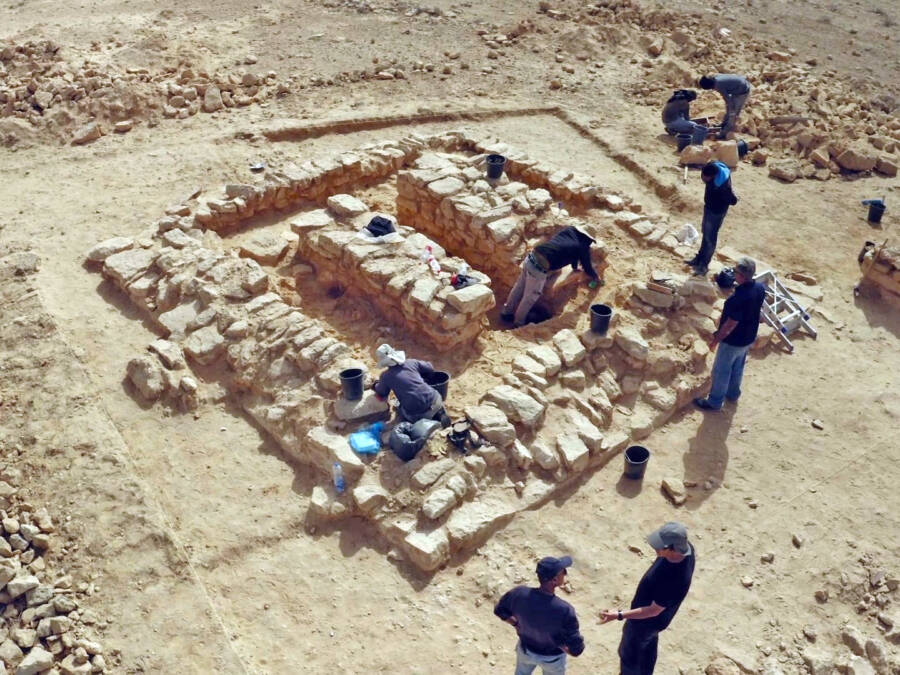
Israel Antiquities AuthorityThe burial site in Israel’s Negev Highlands near Tlalim Junction was likely used by ancient trade caravans.
A 2,500-year-old burial site nestled away in the Negev Highlands was recently unearthed by archaeologists with the Israel Antiquities Authority. The discovery is shedding light on ancient trade routes that saw merchants from places as far away as Yemen, but it also holds evidence of something much darker: human trafficking.
Some of the artifacts found within the dozens of graves at the site, such as jewelry and an amulet of the Egyptian god Bes, suggest that many women were buried there. Historical records indicate that women were purchased from various places across the Middle East in the first millennium B.C.E. — and they may have been transported on the very caravans linked to these newfound tombs.
Uncovering The Burial Site In The Negev Highlands
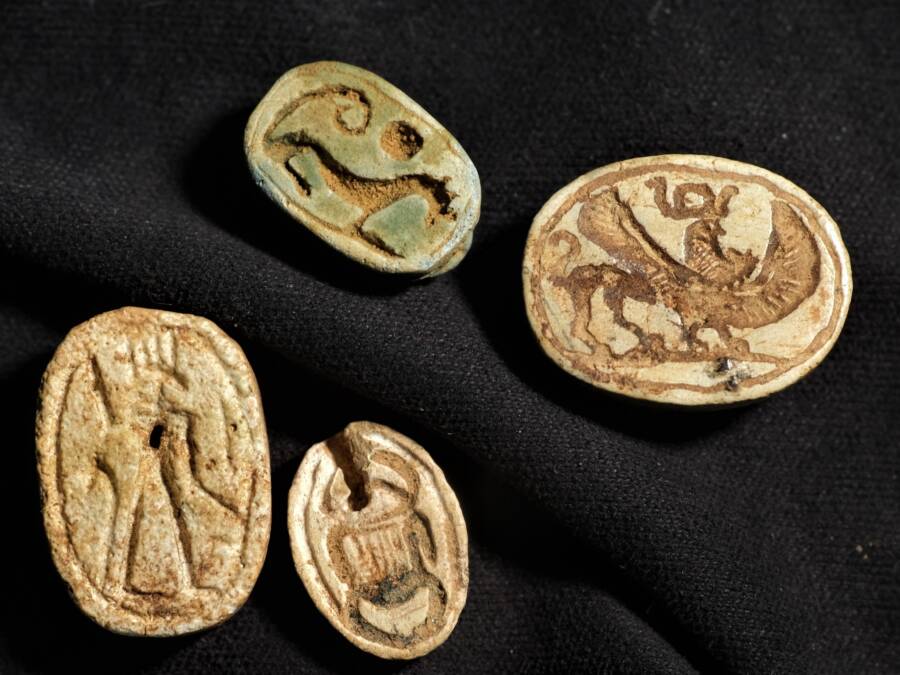
Israel Antiquities AuthorityEgyptian scarabs unearthed at the burial site.
According to a statement from the Israel Antiquities Authority, an excavation in the Negev Highlands near Tlalim Junction revealed dozens of graves within two tombs that were likely used by ancient trade caravans. The tombs date to between the seventh and fifth centuries B.C.E., and they are located at a crossroads of heavily traveled trade routes.
Artifacts found within the graves, such as flint arrowheads, suggest that merchants from Egypt, Phoenicia, and even Yemen were traveling through the area.
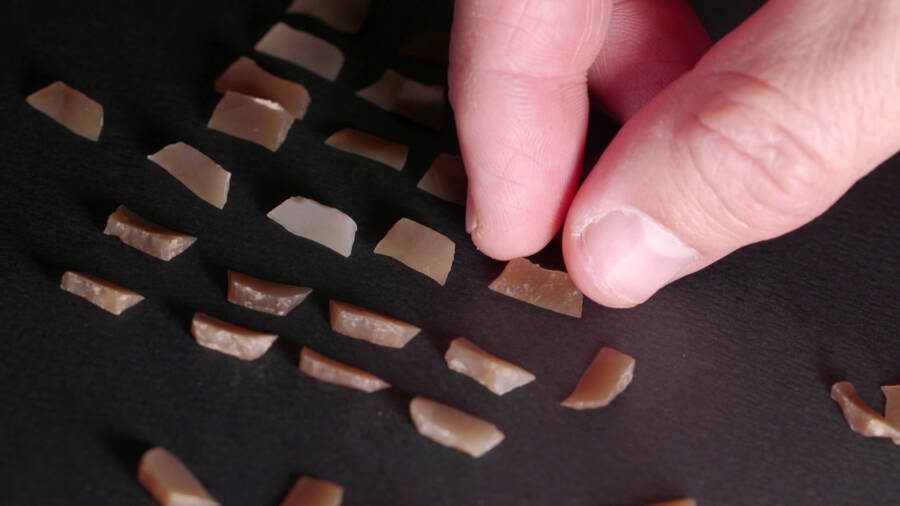
Israel Antiquities AuthorityArrowheads found at the site likely originated in Yemen.
“The unique concentration of flint artifacts uncovered in the site are unparalleled in Israel and the only source that we know of is Yemen and Oman,” said Dr. Jacob Vardi, an expert on flint tools at the Israel Antiquities Authority. “We found traces of red ochre on some of the artifacts — a substance that was used in ancient cultures to symbolize blood and for other decorative purposes. The presence of ochre on these arrowheads may indicate their religious or cultic significance as having special value.”
Archaeologists also found copper and silver jewelry, colorful stone beads, rare shells, and alabaster vessels. “The great variety of finds are evidence that this previously unknown site was a place of burial for trade caravans during that period and burial and cultic practices took place here,” said Dr. Martin David Pasternak, the director of the excavation.
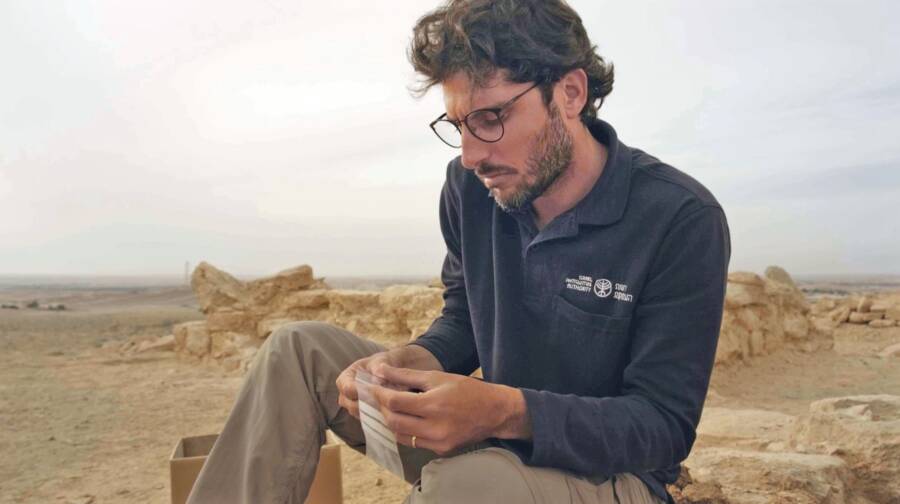
Dr. Martin David Pasternak at the excavation site.
However, one particular artifact — an amulet depicting the Egyptian deity Bes — led researchers to question whether goods were the only things transported by these caravans.
Evidence Of Ancient Human Trafficking In Israel
The Egyptian god Bes was known as a protector of women and children, and the presence of an amulet depicting the deity at the site indicates that women were buried there.
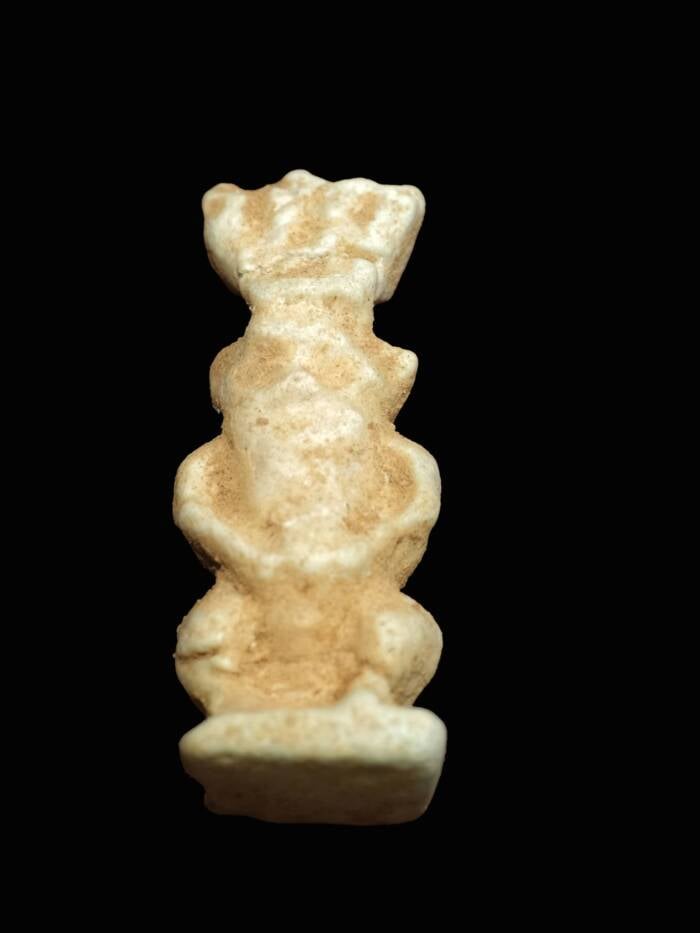
Israel Antiquities AuthorityThe amulet of the god Bes, the ancient Egyptian protector of women and children.
“In light of the presence of special artifacts, we assume that many of the deceased were women, and it is possible that the trade caravans conducted human trafficking,” stated the researchers.
Historical records from the first millennium B.C.E. describe how women were purchased from places like Gaza, Egypt, and Greece. It’s possible that the women buried at the site were being trafficked along Israeli trade routes from these locations. But why were they laid to rest there at all?
Officials came up with two theories. The first is that the site may have been used over several generations for various trade caravans passing through the area. Conversely, the tombs could be part of a single mass burial for a large caravan that came under attack.
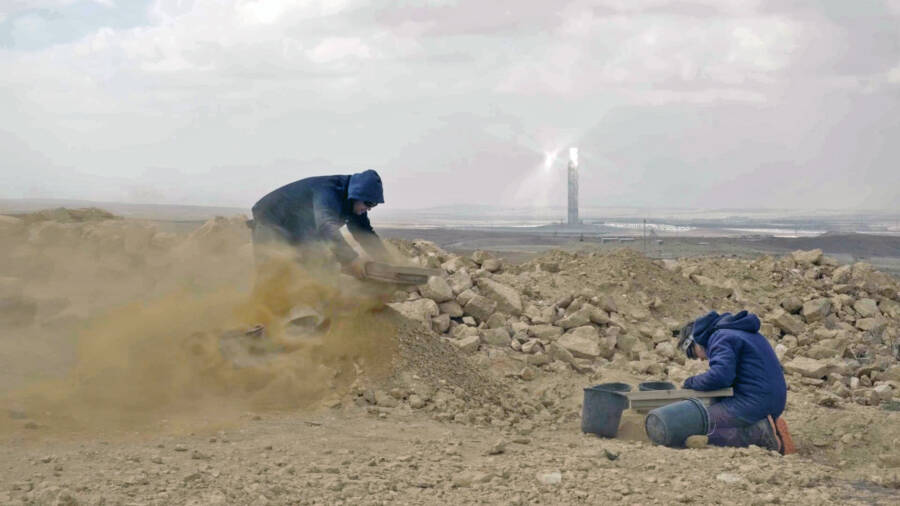
Israel Antiquities AuthorityArchaeologists from the Israel Antiquities Authority excavating the ancient burial site.
“The tombs are not found near any sites, settlements or fortresses that could explain their presence so that they are thought to be a mystery,” stated the researchers. “However, it should be noted that they are situated at a central junction of roads leading through the Negev Highlands to the Arava. It appears that the remains are related to the traders from southern Arabia who were known for their long-distance journeys and who traded, among other things, incense such as frankincense and myrrh. Naturally, these journeys would have taken months under difficult circumstances such as climate, the danger of raiders and other challenges.”
Regardless of how the site came to be, archaeologists have emphasized how unique it is, and they hope that future research will shed even more light on the mysteries they’ve uncovered.
After reading about the mysterious burials discovered along an ancient trade route in Israel, discover whether or not enslaved workers actually built the Egyptian pyramids. Then, go inside the history of the Underground Railroad.





